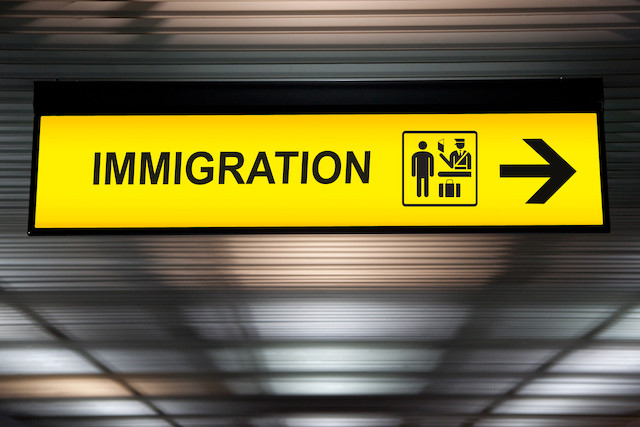“I am expecting to have new migration flows,” says Adolfo Sommarribas of the European Migration Network. Luxembourg’s relative stability compared to other EU nations (the economy contracted 6% compared to 10% in Germany and 12% in France) and limited local workforce means companies will continue to recruit from abroad. EU nationals will be the winners, says Sommarribas. “Because the internal borders aren’t technically closed”, they are unlikely to impact EU passport holders coming to Luxembourg. But third country nationals, such as those from the US or China, may encounter difficulties.
Currently, they make up 7% (18,650) of the documented population and many of them occupy highly qualified roles. Assuming they can obtain the paperwork necessary for a residence permit when administrations in their home countries are closed, and secure housing and passage to Luxembourg, a major obstacle will be family reunification. Family members joining a worker in Luxembourg account for 40% of the residence permits issued annually.
Family reunification complications
To qualify for family reunification, a working migrant must prove they have enough income to support family members. “If you lose your job and are on unemployment benefits, you won’t fill the criteria to bring anyone,” says Sommarribas. And mass unemployment is a real prospect when current furlough schemes cease. In any case, Sommarribas says the complications will make many would-be migrants “think twice before coming”.
On the Brexit front, Sommarribas believes Luxembourg employers will continue to fight tooth and nail for experts to gain from the City’s loss of passporting rights. A surprise benefit from this divorce could be Luxembourg’s research sector.
“I had a huge increase of applications coming from EU citizens who live in the UK and want to come back to a new country,” says EMN’s Birte Nienaber. In the medium-term, master’s students may be more inclined to choose countries like Luxembourg over the UK, because of the low cost of studies as well as the flexibility of having a Schengen visa.
This article was originally published in the January 2021 edition of Delano Magazine
